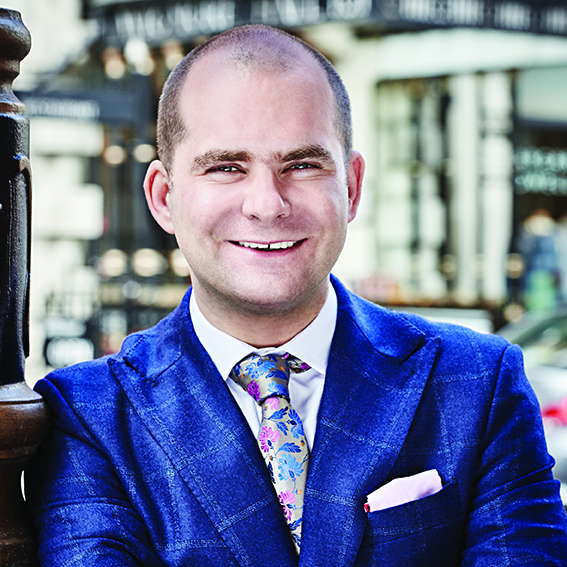Arts Council England (ACE) chair Nicholas Serota has defended his organisation in response to criticism from a London music venue that has said it no longer requires public investment.
Wigmore Hall has raised £10m in private donations in a year as part of a move to become self-sustaining. In making its decision, the London music venue’s director, John Gilhooly, was critical of ACE’s 2020-30 Let’s Create strategy.
The letter from Serota states: “We welcome the news last week that, from 2026, the Wigmore Hall will no longer require the support of public investment. We congratulate its leader, John Gilhooly, for raising £10m in private donations in the space of a year, and wish him every success as he charts a new path for his organisation, and its outstanding work.
“But Wigmore Hall’s achievement at fundraising in a wealthy part of central London cannot and must not be used as an argument against public funding for culture, which remains essential, especially in the current economic climate.”
The letter from Serota also came from members of ACE’s National and Area Councils, including Andrew Lovett, chief executive of the Black Country Living Museum in Dudley; Ciaron Wilkinson, head of external relations, Manchester Museum; Hilary Carty, executive director, Clore Leadership; and Steve Miller, director of culture and heritage at Norfolk County Council.
The letter goes on to state that most arts organisations in England are successful because of a funding model built on public investment, income earned at the box office or through commercial income streams, and money raised from companies, trusts and individuals.
Advertisement
“But that model is currently threatened by the pressures on local authority funding, the steady reduction in the real value of national investment, and rising costs,” the ACE letter states. “Remove public funding, and many of these organisations may not survive. The privileged few will be all we have left. As members of Arts Council England’s National and Area Councils, it is our view that this isn’t good enough.”
In an interview with the BBC in late March, Gilhooly said: “The current policy is just too onerous, and they seem to have no interest in what’s happening on the stage, [or] in the great artists of the world.”
Gilhooly went on to discuss Wigmore Hall’s outreach work, and said: “The bits we do best, we’ll probably do more of. For instance, we work with people living with dementia. We work with some of the most marginalised people in society. Most of that will continue. We believe in all of that. But it’s just the way it’s imposed through Let’s Create that’s exasperating really, and crippling for staff and for trustees.”
Gilhooly added: “We have to go through this whole process every quarter to see that we’ve ticked every box. It takes a huge amount of staff time and energy. It zaps the energy, frankly. We’re parting on good terms, as far as I’m concerned, but it’s a good time for us to go.”
The letter from Serota defended ACE’s Let’s Create strategy.
“We understand that Wigmore Hall based its decision no longer to take public funding in part on a dissatisfaction with our strategy, Let’s Create. It is our view that the principle that underpins this strategy – that everyone in this country, no matter what their background or where they come from, deserves access to the very best of creativity and culture in the places where they live and work – is both just and justifiable.”
Advertisement
The ACE letter went on to say: “We’re proud of our strategy, which was developed in consultation with the public, artists and the cultural sector, and which sets out a balanced commitment to inclusion and access, and to the support and realisation of ambition and artistic excellence. Since its launch in 2021, we have seen the way in which it has enhanced opportunities for people and communities across England.
“We will continue to champion it, and the creative individuals and organisations that sustain culture in this country.”

A statement Wigmore Hall’s John Gilhooly issued in late March said: “After a challenging post-pandemic period, I am pleased that ticket sales increased 28% over the past season. Audiences have now exceeded pre-pandemic levels, the highest in the 123- year history of the hall.
“It is against this backdrop that we are launching the Director’s Fund, Wigmore Hall’s statement of intent to secure the future of chamber music in the UK and for the hall itself. With £7m already pledged, we are aiming to reach at least £10m by 2027, with ambitions to reach £20m within a decade.
“We are currently 97% self-funded; this target will allow Wigmore Hall to become 100% self-sufficient, if necessary.”
ACE’s Let’s Create strategy states that, by 2030, England should be a country where everyone has access to a range of high-quality cultural experiences.
Between 2023 and 2026 the arts council will have invested more than £467m of public money from Government, alongside an estimated £250m each year from the National Lottery.
Enjoy this article?
Most Museums Journal content is only available to members. Join the MA to get full access to the latest thinking and trends from across the sector, case studies and best practice advice.
Join
